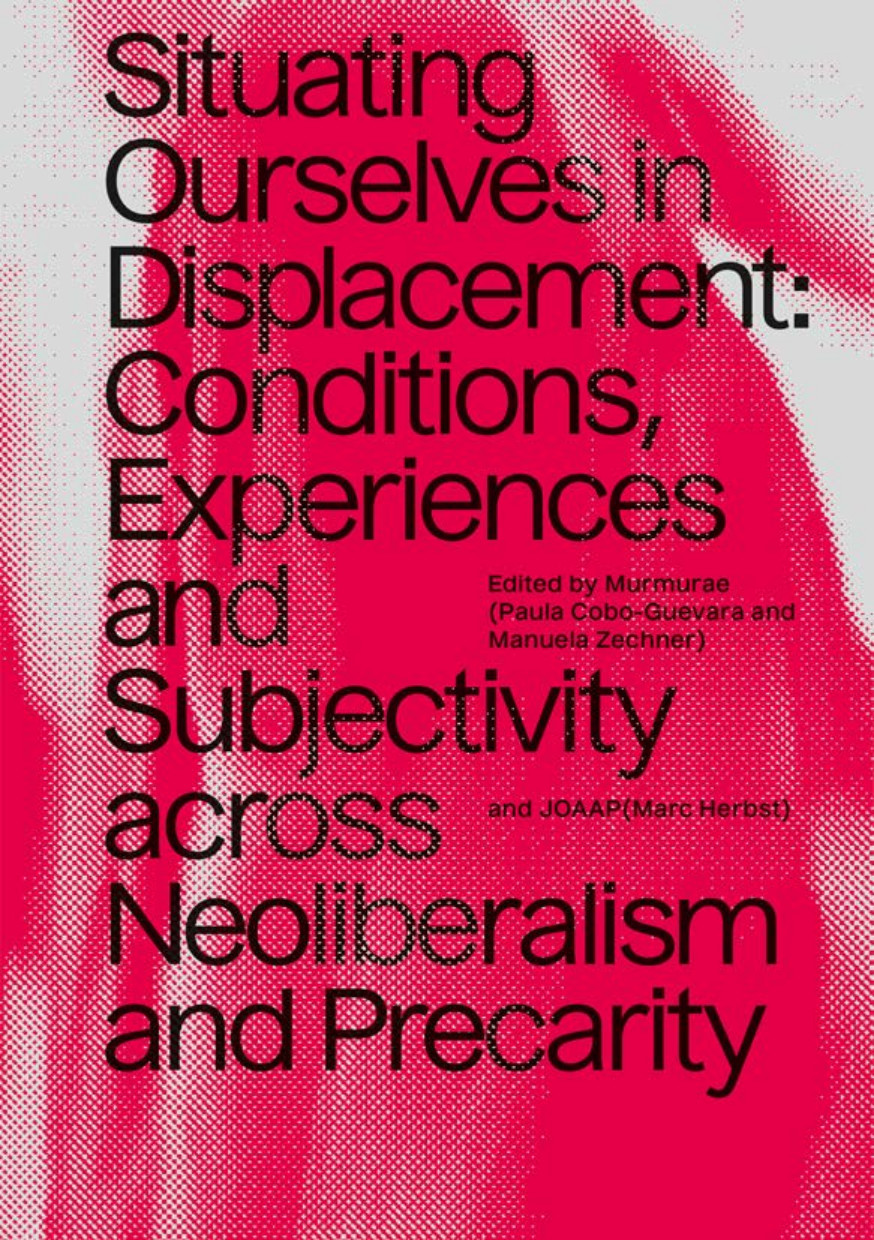Diana Taylor: ¡Presente! The Politics of Presence (2020)
Filed under book | Tags: · affect, decolonization, disappearance, gesture, knowledge, latin america, performance, performance art, politics, presence, violence, zapatistas

“In ¡Presente! Diana Taylor asks what it means to be physically and politically present in situations where it seems that nothing can be done. As much an act, a word, an attitude, a theoretical intervention, and a performance pedagogy, Taylor maps ¡presente! at work in scenarios ranging from conquest, through colonial enactments and resistance movements, to present moments of capitalist extractivism and forced migration in the Americas. ¡Presente!—present among, with, and to; a walking and talking with others; an ontological and epistemic reflection on presence and subjectivity as participatory and relational, founded on mutual recognition—requires rethinking and unlearning in ways that challenge colonial epistemologies. Showing how knowledge is not something to be harvested but a process of being, knowing, and acting with others, Taylor models a way for scholarship to be present in political struggles.”
Publisher Duke University Press, Durham, NC, 2020
Dissident Acts series
ISBN 9781478009443, 1478009446
xii+329 pages
PDF (31 MB, updated on 2021-4-13)
Comment (0)Murmurae, JOAAP (eds.): Situating Ourselves in Displacement: Conditions, Experiences and Subjectivity across Neoliberalism and Precarity (2018)
Filed under book | Tags: · displacement, neoliberalism, precarity, presence, subjectivity

“Displacement is a key paradigm of our time, for who can afford not to move, to shift, to change, to develop and improve – or to be moved, shifted, displaced? Situatedness is a key condition for solid and sustainable practices, in politics, arts, research or otherwise. Yet situatedness is not something we can take for granted today. What is the meaning of situatedness within displacement?
In this book we address conditions, experiences and subjectivity as shaped by the tension(s) between displacement and situatedness. Neoliberalism and precarity are the main contexts we depart from in developing concepts, tools and tactics that stem from our collective and individual lives.
What do politics and ethics mean in the context of frequent displacements? How do we understand and give account of our positionality and trajectory as itinerant subjects? What tools do we have for orienting ourselves in new contexts, for mapping out stakes, problems and possibilities of relating?”
With contributions by Alan Moore, Amit S. Rai, Bue Rübner Hansen, Claire English, Claudia Delso, Cristina Ribas, Esquizo Grupo Barcelona, Jara Rocha, Julius, Laura Lapinskiene, Manuela Zechner, Marc Herbst, Ninaha, Sara Larsdotter Hallqvist, and Paula Cobo–Guevara.
Edited by Paula Cobo Guevara and Manuela Zechner (Murmurae) and Marc Herbst (Journal of Aesthetics & Protest)
Publisher Journal of Aesthetics & Protest Press, Leipzig, and Minor Compositions, Colchester, 2018
Creative Commons BY-NC-SA 4.0 International License
ISBN 9781570273230
224 pages
Hans Gumbrecht: Production of Presence: What Meaning Cannot Convey (2004)
Filed under book | Tags: · aesthetics, art, constructivism, epistemology, hermeneutics, literary theory, meaning, metaphysics, philosophy, presence

“Production of Presence is a comprehensive version of the thinking of Hans Ulrich Gumbrecht, one of the most consistently original literary scholars writing today. It offers a personalized account of some of the central theoretical movements in literary studies and in the humanities over the past thirty years, together with an equally personal view of a possible future. Based on this assessment of the past and the future of literary studies and the humanities, the book develops the provocative thesis that, through their exclusive dedication to interpretation, i.e. to the reconstruction and attribution of meaning, the humanities have become incapable of addressing a dimension in all cultural phenomena that is as important as the dimension of meaning. Interpretation alone cannot do justice to the dimension of “presence,” a dimension in which cultural phenomena and cultural events become tangible and have an impact on our senses and our bodies. Production of Presence is a passionate plea for a rethinking and a reshaping of the intellectual practice within the humanities.”
Publisher Stanford University Press, 2004
ISBN 0804749167, 9780804749169
200 pages
PDF (updated on 2019-12-7)
Comment (0)
